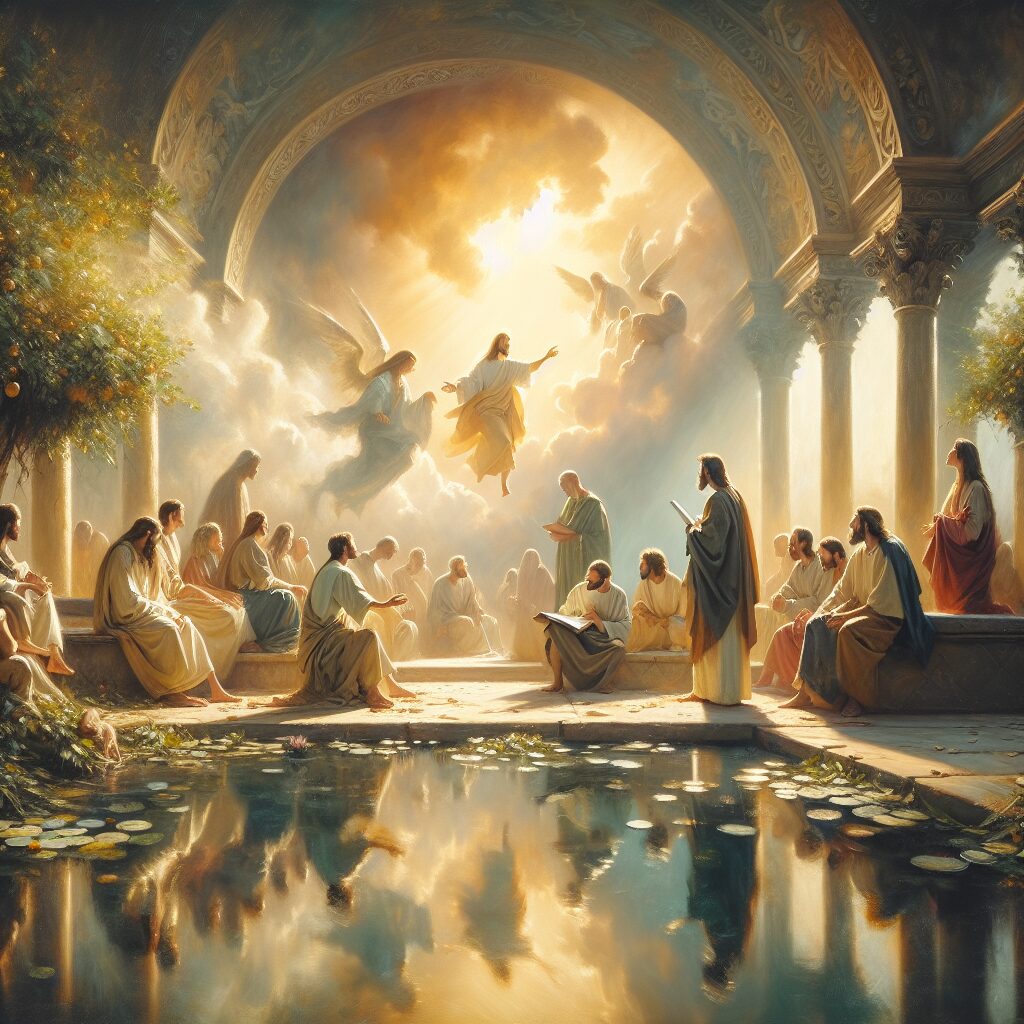Daily Bible Affirmation for February 18, 2020 – 1 Chronicles 4:19

Bible Verse
“And the sons of his wife Hodiah, the sister of Naham, were the fathers of Keilah the Garmite and Eshtemoa the Maacathite.” – 1 Chronicles 4:19
Reflection
The verse from 1 Chronicles 4:19 at first glance may appear as another entry in the extensive genealogies that populate certain parts of the Bible. It names individuals and family lines that seem distant from us today, echoing through ancient history. Yet, within these seemingly mundane records resides a profound truth about divine intention and the interconnectedness of humanity.
At its heart, this verse is a testament to community and lineage. The names mentioned are not just ancient references but represent lives interwoven into the greater tapestry of God’s plan. Each name signifies a unique role played within the unfolding story of God’s people. Such genealogical passages remind us that every individual is part of a broader narrative — one crafted with divine purpose.
Reflecting on this passage inspires us to consider our ties to family, both biological and spiritual. It encourages us to appreciate the legacy of those who came before us and recognize our responsibility toward future generations. Our lives are bound within a communal story, which extends beyond borders and time, uniting us under God’s unyielding love.
These genealogies also speak of inclusion and diversity within God’s family. By mentioning various tribal and familial connections, the passage echoes the message of unity amidst diversity. The interconnected names reflect how God’s love and purpose encompass all kinds of people, embracing their differences while fostering togetherness.
In a world where it is easy to feel isolated, overlooking seemingly trivial verses can sometimes deny us insight into God’s inclusive vision for creation. This ancient listing serves as a gentle reminder that, nestled within our individual paths, we share a collective journey. We all have a part to play in the greater story, underscoring the importance of perseverance, hope, and unwavering trust in God’s guidance. By understanding our place within this broader picture, we can garner strength and encouragement from knowing we are never alone. God intends every life to be meaningful, connected to past, present, and future generations through love and integrity.
Closing Thought
The genealogy in 1 Chronicles 4:19 invites us to cherish our roots and embrace our role in God’s intricate design. With each piece fitting perfectly within His grand story, we are reminded of the beauty in diversity and the strength within community—assuring us that God’s love unites us all through time and space.
Daily Bible Affirmation for February 18, 2020 – 1 Chronicles 4:19 Read Post »



